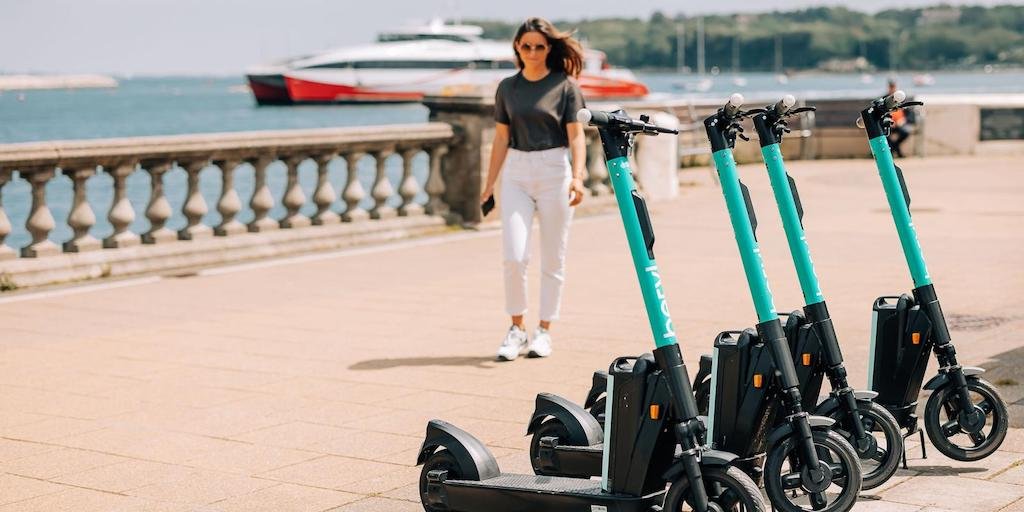Trial investigates if digital twins can improve e-scooter operations
Shared micromobility operator Beryl and multinational IT services provider Fujitsu are collaborating on a research project designed to improve the efficiency and sustainability of the Isle of Wight’s shared e-scooter scheme.
Using digital twin “rehearsal technology” the project aims to help the Beryl-operated scheme to increase vehicle availability at the most convenient spots, while reducing operational costs and carbon emissions.
Fujitsu’s new technology combines behavioural economics models and AI, allowing for simulations that mirror the behaviour of people in the real world. The simulations can not only reproduce biased behaviours, including overestimation of losses, but also indirect factors such as weather.
This enables them to more accurately predict the impact of initiatives and incentives on people’s transport choices, such as offering discounted fees for users who return e-scooters to specific bays.
It will also be able to more accurately predict how changes to transportation will affect operating costs and contribute towards reducing Beryl’s overall carbon footprint.
Beryl’s Chief Technology Officer, Sacha Manson-Smith, said, “We’re really excited to be working alongside an industry leader, using the latest simulation technology to help boost the efficiency of our schemes and significantly improve the user experience.
“Social Digital Twin will help Beryl to accurately predict how changes in human behaviour interact with evolving conditions in the environment, providing us with even higher levels of forecasting accuracy.
“We can use this extra knowledge to introduce scheme improvements that support our aim of encouraging as many people as possible to take up sustainable transport options.”
Fujitsu Research’s Fellow and Head of Converging Technologies Laboratory, Daiki Masumoto, said, “Fujitsu is committed to initiatives that build trust in society through innovation and our new digital rehearsal technology is an example of how we can help better inform public policy and business planning.
“The trials on the Isle of Wight use digital rehearsal technology to test in advance the effects of people switching from cars to e-scooters. Our ultimate aim is to bring business benefits to Beryl, reduce the damaging environmental and social effects of car use, inform transport policy on the Isle and positively contribute to the Isle of Wight’s wider economy.
“In the future, Fujitsu plans to leverage the results of this project to support the sustainability transformation of mobility service providers and contribute to the realisation of a sustainable, fair, and diverse society through converging technologies that combine computer sciences with knowledge from the humanities and social sciences.”
The first test simulations will start in May, with a more comprehensive programme to follow over the summer. The island was chosen due to its geographically isolated location.

